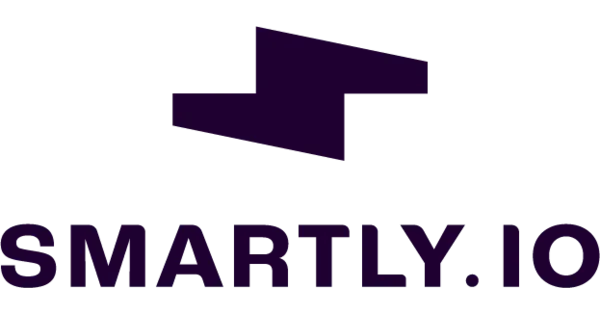Behavioral DNA results revealed that I may be more likely than the rest of the population to take risks. Whether or not this is true, many of us have taken risks to get to where we are in PreSales today.
There is a lot that goes into risk taking, and it is important to distinguish between necessary and unnecessary (or reckless) risks. (One unnecessary risk may include being the first person to jump off a cliff into the water below when you don't know how deep it is.)
Making the "leap" (metaphorically, not cliff jumping, although this is an activity I enjoy) has a higher success rate when we understand that what makes us successful encompasses:
- Hard skills, like particular industry or technology experience
- Soft skills, like problem-solving and time management
This is where emotional intelligence (EQ) is valuable — and necessary — across industries and professions.
At the Modern SC Summit earlier this month, panelists Jess Ashwood, Paul Harris and Nikhil Sarma, outlined three key areas where improving EQ can help PreSales professionals, namely how:
- Better understanding ourselves, what motivates us, what our strengths are, and what types of environments give us the space to thrive will help us perform better discovery and higher impact demos.
- Understanding our EQ improves our ability to work with our sales counterparts and our audience.
- Using our personality differences to our advantage can help us get promoted or improve hiring to increase diversity from another angle (slight plug for the next PreSales Collective summit in May!).
A few other key takeaways from our panelists were:
- While we are often demonstrating the value of a specific technology, most of our profession is to be human;
- The overlap with teaching and understanding audience needs helps us connect well with potential customers; and
- Adaptability is important when an original plan no longer works for the present meeting. Taking heed to a prospect or client request, such as not showing any slides, also shows that we are actively listening.
What is Emotional Intelligence (EQ)?
Let's take a brief step back. The Oxford Dictionary's definition of emotional intelligence is "the capacity to be aware of, control, and express one's emotions, and to handle interpersonal relationships judiciously and empathetically."
Despite often diverging career paths in this field, we often use these differences as a way to relate to others and our audience. Whether we consciously chose this profession or somewhat stumbled into it, our personalities, which include both strengths and struggles, either lead us to our current opportunity or have helped us excel in our new(er) role in PreSales.
One of my favorite graphics that aptly illustrates the importance of EQ is below. This graphic puts EQ at the top of the Solution Engineering "Hierarchy of Skills" and includes active listening, anticipating, challenging, and storytelling.

We should all take the time to understand what makes us tick, as this will improve our EQ and understanding of others.
Why EQ is Important
Having the capacity to control our emotions means that we need to understand who we are. Depending on where you are in your personality discovery journey (Enneagram, Meijers-Briggs, Insight Finder) and strength finding (High Fives, Gallup Strengths Test), this piece can be a bit challenging, mainly because it requires time set aside for self-reflection.
Understanding Ourselves and Others
With packed calendars, this can be tough for anyone. This is where having intention, whether formally writing down a goal for the year to learn more about your personality or utilizing team building activities to discuss the broad personalities represented on the team can help. Understanding what motivates us and putting ourselves in our audience's perspective goes a long way with improving our communication style.
Our EQ improves when we have a better understanding of the variety of different personalities that we work with on a daily basis. One of the best parts about being a SC is that we are the connective tissue of many organizations, connecting our Account Executive (AE) counterparts with our product team; running impactful demos for audiences ranging from an analyst to the C-Suite. Great SCs will use EQ to make these relationships more successful and to provide more meaningful conversations.
Better AE Partnerships
It is especially important to understand how to work best with someone you will spend the most time with, and most importantly, your job performance is also evaluated on: the AE, your co-pilot. Having higher EQ helps us work the most efficiently with people, whether we share similar personalities or not. Actively listening to our counterparts as we analyze deals and reconvene after demos to level-set what our take-aways were can only improve our working relationship as well as what we relay to the audience.
How we work with our AE is also reflected in-person or on screen in front of our prospects or clients. SCs use EQ every day to confirm that we are spending time on the right use cases and problems to solve with our prospects. EQ also helps when we run into a "difficult" call. Maybe we run into a prospect who is trying to poke holes in a solution versus discussing specific problems. How we handle adversity (and what we learn from these experiences) only improves our EQ and increases what skills we have in our tool belt for a future call that may go a similar way.
Growing SC Teams
Another area that may not immediately come to mind where EQ can help is in the interview process for companies hiring SCs or those trying to move up within their organization.
Recognizing the importance of EQ can help diversify our teams. When we take a step back and think about what skills can be more easily taught, say a particular technology, we can include a wider range of individuals in the field. These soft, transferable skills are what makes the leap from teacher or intelligence professional to SC possible. To continue to expand career opportunities for everyone, this is something to strive for and include in the interview process.
Conclusion
From a personal side, understanding how we want to use our EQ can assist with the decision on whether we want to stay as individual contributors or move into management. Understanding our "why" and what motivates us, which only comes with time for reflection, can ensure that we are moving along in the career path that best aligns with our needs and goals.
Wherever you are in understanding your personality and EQ, know that it is about the journey — not the destination.

About Kathleen Kuczma
Kathleen Kuczma is an Enneagram 9, an INFP on the Myers-Briggs and a high S, I on the DISC scale, otherwise known as the “Relater”. She is an accidental sales engineer who is using her creativity and passion for relating to others to run efficient and impactful product demonstrations. A prior intelligence analyst, Kathleen is using her chance career change to share her “new” career experience with others in an effort to expand diversity in the field. Kathleen is currently a Senior Sales Engineer with Recorded Future.
Behavioral DNA results revealed that I may be more likely than the rest of the population to take risks. Whether or not this is true, many of us have taken risks to get to where we are in PreSales today.
There is a lot that goes into risk taking, and it is important to distinguish between necessary and unnecessary (or reckless) risks. (One unnecessary risk may include being the first person to jump off a cliff into the water below when you don't know how deep it is.)
Making the "leap" (metaphorically, not cliff jumping, although this is an activity I enjoy) has a higher success rate when we understand that what makes us successful encompasses:
- Hard skills, like particular industry or technology experience
- Soft skills, like problem-solving and time management
This is where emotional intelligence (EQ) is valuable — and necessary — across industries and professions.
At the Modern SC Summit earlier this month, panelists Jess Ashwood, Paul Harris and Nikhil Sarma, outlined three key areas where improving EQ can help PreSales professionals, namely how:
- Better understanding ourselves, what motivates us, what our strengths are, and what types of environments give us the space to thrive will help us perform better discovery and higher impact demos.
- Understanding our EQ improves our ability to work with our sales counterparts and our audience.
- Using our personality differences to our advantage can help us get promoted or improve hiring to increase diversity from another angle (slight plug for the next PreSales Collective summit in May!).
A few other key takeaways from our panelists were:
- While we are often demonstrating the value of a specific technology, most of our profession is to be human;
- The overlap with teaching and understanding audience needs helps us connect well with potential customers; and
- Adaptability is important when an original plan no longer works for the present meeting. Taking heed to a prospect or client request, such as not showing any slides, also shows that we are actively listening.
What is Emotional Intelligence (EQ)?
Let's take a brief step back. The Oxford Dictionary's definition of emotional intelligence is "the capacity to be aware of, control, and express one's emotions, and to handle interpersonal relationships judiciously and empathetically."
Despite often diverging career paths in this field, we often use these differences as a way to relate to others and our audience. Whether we consciously chose this profession or somewhat stumbled into it, our personalities, which include both strengths and struggles, either lead us to our current opportunity or have helped us excel in our new(er) role in PreSales.
One of my favorite graphics that aptly illustrates the importance of EQ is below. This graphic puts EQ at the top of the Solution Engineering "Hierarchy of Skills" and includes active listening, anticipating, challenging, and storytelling.

We should all take the time to understand what makes us tick, as this will improve our EQ and understanding of others.
Why EQ is Important
Having the capacity to control our emotions means that we need to understand who we are. Depending on where you are in your personality discovery journey (Enneagram, Meijers-Briggs, Insight Finder) and strength finding (High Fives, Gallup Strengths Test), this piece can be a bit challenging, mainly because it requires time set aside for self-reflection.
Understanding Ourselves and Others
With packed calendars, this can be tough for anyone. This is where having intention, whether formally writing down a goal for the year to learn more about your personality or utilizing team building activities to discuss the broad personalities represented on the team can help. Understanding what motivates us and putting ourselves in our audience's perspective goes a long way with improving our communication style.
Our EQ improves when we have a better understanding of the variety of different personalities that we work with on a daily basis. One of the best parts about being a SC is that we are the connective tissue of many organizations, connecting our Account Executive (AE) counterparts with our product team; running impactful demos for audiences ranging from an analyst to the C-Suite. Great SCs will use EQ to make these relationships more successful and to provide more meaningful conversations.
Better AE Partnerships
It is especially important to understand how to work best with someone you will spend the most time with, and most importantly, your job performance is also evaluated on: the AE, your co-pilot. Having higher EQ helps us work the most efficiently with people, whether we share similar personalities or not. Actively listening to our counterparts as we analyze deals and reconvene after demos to level-set what our take-aways were can only improve our working relationship as well as what we relay to the audience.
How we work with our AE is also reflected in-person or on screen in front of our prospects or clients. SCs use EQ every day to confirm that we are spending time on the right use cases and problems to solve with our prospects. EQ also helps when we run into a "difficult" call. Maybe we run into a prospect who is trying to poke holes in a solution versus discussing specific problems. How we handle adversity (and what we learn from these experiences) only improves our EQ and increases what skills we have in our tool belt for a future call that may go a similar way.
Growing SC Teams
Another area that may not immediately come to mind where EQ can help is in the interview process for companies hiring SCs or those trying to move up within their organization.
Recognizing the importance of EQ can help diversify our teams. When we take a step back and think about what skills can be more easily taught, say a particular technology, we can include a wider range of individuals in the field. These soft, transferable skills are what makes the leap from teacher or intelligence professional to SC possible. To continue to expand career opportunities for everyone, this is something to strive for and include in the interview process.
Conclusion
From a personal side, understanding how we want to use our EQ can assist with the decision on whether we want to stay as individual contributors or move into management. Understanding our "why" and what motivates us, which only comes with time for reflection, can ensure that we are moving along in the career path that best aligns with our needs and goals.
Wherever you are in understanding your personality and EQ, know that it is about the journey — not the destination.

About Kathleen Kuczma
Kathleen Kuczma is an Enneagram 9, an INFP on the Myers-Briggs and a high S, I on the DISC scale, otherwise known as the “Relater”. She is an accidental sales engineer who is using her creativity and passion for relating to others to run efficient and impactful product demonstrations. A prior intelligence analyst, Kathleen is using her chance career change to share her “new” career experience with others in an effort to expand diversity in the field. Kathleen is currently a Senior Sales Engineer with Recorded Future.
Behavioral DNA results revealed that I may be more likely than the rest of the population to take risks. Whether or not this is true, many of us have taken risks to get to where we are in PreSales today.
There is a lot that goes into risk taking, and it is important to distinguish between necessary and unnecessary (or reckless) risks. (One unnecessary risk may include being the first person to jump off a cliff into the water below when you don't know how deep it is.)
Making the "leap" (metaphorically, not cliff jumping, although this is an activity I enjoy) has a higher success rate when we understand that what makes us successful encompasses:
- Hard skills, like particular industry or technology experience
- Soft skills, like problem-solving and time management
This is where emotional intelligence (EQ) is valuable — and necessary — across industries and professions.
At the Modern SC Summit earlier this month, panelists Jess Ashwood, Paul Harris and Nikhil Sarma, outlined three key areas where improving EQ can help PreSales professionals, namely how:
- Better understanding ourselves, what motivates us, what our strengths are, and what types of environments give us the space to thrive will help us perform better discovery and higher impact demos.
- Understanding our EQ improves our ability to work with our sales counterparts and our audience.
- Using our personality differences to our advantage can help us get promoted or improve hiring to increase diversity from another angle (slight plug for the next PreSales Collective summit in May!).
A few other key takeaways from our panelists were:
- While we are often demonstrating the value of a specific technology, most of our profession is to be human;
- The overlap with teaching and understanding audience needs helps us connect well with potential customers; and
- Adaptability is important when an original plan no longer works for the present meeting. Taking heed to a prospect or client request, such as not showing any slides, also shows that we are actively listening.
What is Emotional Intelligence (EQ)?
Let's take a brief step back. The Oxford Dictionary's definition of emotional intelligence is "the capacity to be aware of, control, and express one's emotions, and to handle interpersonal relationships judiciously and empathetically."
Despite often diverging career paths in this field, we often use these differences as a way to relate to others and our audience. Whether we consciously chose this profession or somewhat stumbled into it, our personalities, which include both strengths and struggles, either lead us to our current opportunity or have helped us excel in our new(er) role in PreSales.
One of my favorite graphics that aptly illustrates the importance of EQ is below. This graphic puts EQ at the top of the Solution Engineering "Hierarchy of Skills" and includes active listening, anticipating, challenging, and storytelling.

We should all take the time to understand what makes us tick, as this will improve our EQ and understanding of others.
Why EQ is Important
Having the capacity to control our emotions means that we need to understand who we are. Depending on where you are in your personality discovery journey (Enneagram, Meijers-Briggs, Insight Finder) and strength finding (High Fives, Gallup Strengths Test), this piece can be a bit challenging, mainly because it requires time set aside for self-reflection.
Understanding Ourselves and Others
With packed calendars, this can be tough for anyone. This is where having intention, whether formally writing down a goal for the year to learn more about your personality or utilizing team building activities to discuss the broad personalities represented on the team can help. Understanding what motivates us and putting ourselves in our audience's perspective goes a long way with improving our communication style.
Our EQ improves when we have a better understanding of the variety of different personalities that we work with on a daily basis. One of the best parts about being a SC is that we are the connective tissue of many organizations, connecting our Account Executive (AE) counterparts with our product team; running impactful demos for audiences ranging from an analyst to the C-Suite. Great SCs will use EQ to make these relationships more successful and to provide more meaningful conversations.
Better AE Partnerships
It is especially important to understand how to work best with someone you will spend the most time with, and most importantly, your job performance is also evaluated on: the AE, your co-pilot. Having higher EQ helps us work the most efficiently with people, whether we share similar personalities or not. Actively listening to our counterparts as we analyze deals and reconvene after demos to level-set what our take-aways were can only improve our working relationship as well as what we relay to the audience.
How we work with our AE is also reflected in-person or on screen in front of our prospects or clients. SCs use EQ every day to confirm that we are spending time on the right use cases and problems to solve with our prospects. EQ also helps when we run into a "difficult" call. Maybe we run into a prospect who is trying to poke holes in a solution versus discussing specific problems. How we handle adversity (and what we learn from these experiences) only improves our EQ and increases what skills we have in our tool belt for a future call that may go a similar way.
Growing SC Teams
Another area that may not immediately come to mind where EQ can help is in the interview process for companies hiring SCs or those trying to move up within their organization.
Recognizing the importance of EQ can help diversify our teams. When we take a step back and think about what skills can be more easily taught, say a particular technology, we can include a wider range of individuals in the field. These soft, transferable skills are what makes the leap from teacher or intelligence professional to SC possible. To continue to expand career opportunities for everyone, this is something to strive for and include in the interview process.
Conclusion
From a personal side, understanding how we want to use our EQ can assist with the decision on whether we want to stay as individual contributors or move into management. Understanding our "why" and what motivates us, which only comes with time for reflection, can ensure that we are moving along in the career path that best aligns with our needs and goals.
Wherever you are in understanding your personality and EQ, know that it is about the journey — not the destination.

About Kathleen Kuczma
Kathleen Kuczma is an Enneagram 9, an INFP on the Myers-Briggs and a high S, I on the DISC scale, otherwise known as the “Relater”. She is an accidental sales engineer who is using her creativity and passion for relating to others to run efficient and impactful product demonstrations. A prior intelligence analyst, Kathleen is using her chance career change to share her “new” career experience with others in an effort to expand diversity in the field. Kathleen is currently a Senior Sales Engineer with Recorded Future.






.webp)


